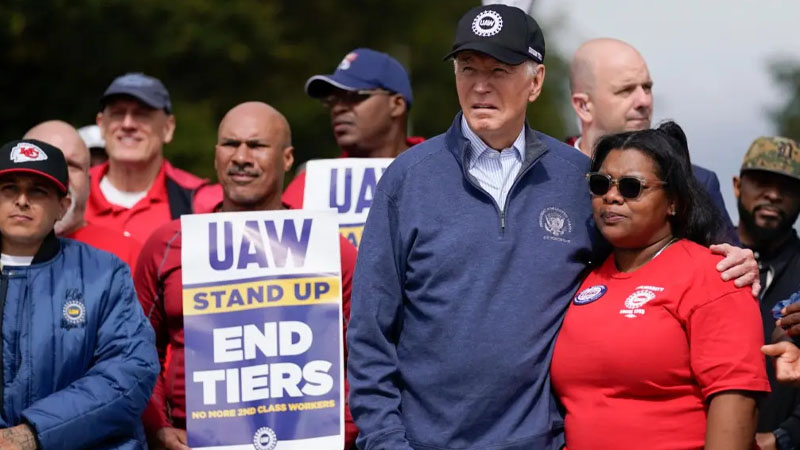The United Auto Workers (UAW) strike against the Big Three (General Motors, Ford, and Stellantis) made waves this summer. UAW’s strong stand echoed their tradition of countering unchecked corporate power, with demands like significant wage hikes and doing away with the tiered wage system.
The Big Three’s counter was a “historic contract” offer. But, set against the backdrop of skyrocketing CEO compensations, it raises eyebrows. For instance, Ford’s CEO-to-average-worker pay ratio is an astounding 281:1. And while General Motors CEO Mary Barra pocketed $29 million, much of it from performance bonuses, UAW workers could argue for a fairer distribution of those profits. The recent labor unrest begs the question: Could a more equal distribution of profits have prevented the strike?
Such imbalances aren’t a natural outcome. In fact, a tax proposal in 2021 might’ve made this strike a non-issue. Bernie Sanders’ proposed Tax Excessive CEO Pay Act aimed to curtail high executive compensation by imposing a tax on firms where CEOs earn over 50 times their median worker. This surcharge increased as the pay ratio expanded, compelling CEOs to either reduce their pay or increase their workers’, hence averting situations like the current strike.
The origins of this innovative idea trace back to Portland in 2016, which was later emulated by San Francisco in 2020. However, despite gaining some traction, the act didn’t see the light of day in 2021 or 2022.
Imagine a world where firms are driven to bridge the wage gap between workers and CEOs. Such policy could also have influenced the Writers Guild of America’s recent strike, which was based on demands for better pay against a backdrop of media CEOs raking in tens of millions.
Congress continues to mull over potential solutions. The banking sector, infamous for its executive pay discrepancies, saw the Senate Banking Committee pass the RECOUP Act, aiming to retrieve a part of bank executives’ pay preceding a bank collapse.
Polls show that voters are inclined to support such reforms, with significant numbers from both political divides endorsing regulations that reclaim bonuses from failed bank executives.
The broader question remains: could tax reforms, like Sanders’, rebalance corporate wage disparities? As Senator Sheldon Whitehouse opined, CEO pay, hundreds of times the average worker’s, is unjustifiable. He believes that Congress has the power to make it fairer.


